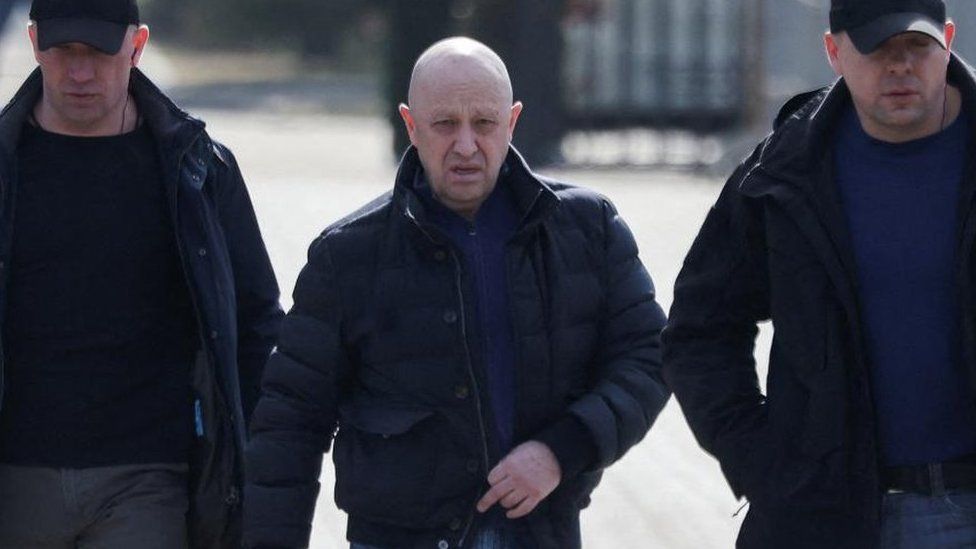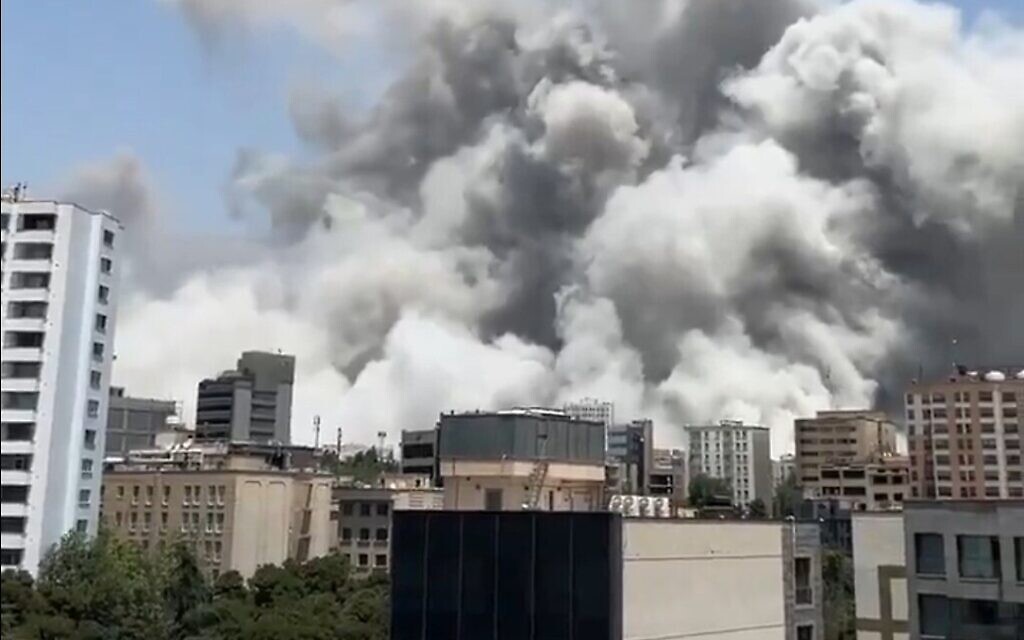Was Wagner chief Yevgeny Prigozhin a dead man walking?
Ever since he led a mutinous march on Moscow in late June Yevgeny Prigozhin was described by Russia watchers as "a dead man walking".

Commenting recently on the mercenary boss's life expectancy the CIA Director William Burns even said: "If I were Prigozhin I wouldn't fire my food taster".
If it is ever proven that the mid-air destruction of a plane carrying Yevgeny Prigozhin was an act of deliberate, cold-blooded revenge by the Kremlin, this will go down in Russian history as the ultimate "special military operation".
Prigozhin, a former convict, chef and hot dog salesman-turned mercenary boss, had a lot of admirers amongst the ranks of his Wagner mercenary army and beyond. Many will have witnessed his warm reception by the public in Rostov-on-Don when he turned up there exactly two months ago in the throes of his aborted one-day rebellion.
But he also had a lot of enemies in Moscow, most notably in the upper ranks of the Russian military whose leaders he frequently and publicly criticised.
What has probably turned out to have been his fatal mistake was crossing President Putin when he launched that march on Moscow on 23 June. Although he did not mention Putin by name at the time, Prigozhin infuriated the Kremlin by very publicly criticising the official reasons given for Russia's invasion of Ukraine in February 2022. He told Russians they had been deceived and that their sons were dying in the Ukraine war due to poor leadership. This was heresy and Putin's video message on that day was sizzling with vitriol. He called Prigozhin's march on Moscow a betrayal and a stab in the back.
Vladimir Putin does not forgive traitors nor those who challenge him.
The former Russian intelligence officer-turned defector, Alexander Litvinenko, died a slow and agonising death in a London hospital in 2006 after he was poisoned with radioactive Polonium-210.
A subsequent investigation concluded that this assassins brought the lethal substance with them from Russia and that it could only have been sourced from a Russian government laboratory. Moscow denied any involvement but refused to surrender the two suspects for trial.
Then there was Sergei Skripal, a former Russian KGB officer and again a defector to Britain.
In 2018 he and his daughter Yulia narrowly escaped death when GRU Russian military intelligence officers allegedly put Novichok nerve agent on the door handle of his house in Salisbury.
A discarded perfume bottle containing the lethal agent was later found by a local Wiltshire resident, Dawn Sturgess, who died after applying it to her wrists.
Inside Russia there is a long list of people, including both critics and businessmen, who have met with sudden death, in some cases "falling out of upper floor windows". President Putin's most vocal opponent, Alexei Navalny, is now languishing in a penal colony on what are said to be politically-motivated fraud charges. He too survived assassination by Novichok nerve agent poisoning after nearly dying onboard a flight across Siberia in 2020.
But Prigozhin was a very different case, which makes his demise all the more controversial for Russians. Here was a man who was extremely useful to the Kremlin and seen by some Russians as a national hero.
His Wagner group of mercenaries, founded in 2014, was formed from a hard core of former Russian Speznaz (Special Forces) operatives and other soldiers. It has been highly active in eastern Ukraine where it drove the Ukrainian army out of Bakhmut, acquiring a fearsome reputation not shared by the often decrepit and poorly-led regular Russian army. Wagner bolstered its ranks when Prigozhin personally toured Russian penal colonies to recruit thousands of convicts, including rapists and murderers. These were effectively used as cannon fodder in eastern Ukraine where commanders ordered them to advance into withering fire in repeated attempts to overwhelm the enemy lines.
Wagner have also been operating in Syria for years but it is in Africa where they have achieved strategic success for the Kremlin. There they have developed a brutally effective business model that is proving popular with undemocratic regimes. By providing a range of "security services", from VIP protection to influencing elections, silencing critics, they have received in return mineral rights and access to gold and other precious metals in several African states. Money flows back to Moscow and everyone gets rich - except the actual populations of those countries.
Wagner troops have been accused of numerous human rights abuses including the massacre of civilians in Mali and Central African Republic. Yet they have succeeded in supplanting French and other western forces across a huge swathe of the African continent. Only this week Prigozhin popped up on a Telegram channel in a video presumed to have been filmed at a base in Mali, promising an expansion of Wagner's activities in Africa and "freedom" for its people.
Despite all this, there are certainly some back in Moscow, notably in military intelligence, who viewed him as a liability, a loose cannon and a potential future threat to Putin's rule and the system around him.
-bbc






